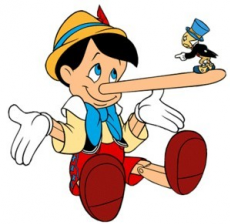
It has long been an area of interest to the police whether it is possible to tell if a person is lying. If so, this could potentially enable us to much more easily detect criminals. There are scientific methods that are already used in some cultures, such as the polygraph in the United States, but these are not stable enough to be used in court cases, since they can still be tricked and in this case, they must be certain since they are deciding important decisions about the fate of an individual’s life.
Mann wanted to see if there were ways in which police officers could tell if suspects were lying easily and to test the ability of police to currently detect lies. He expected their ability to detect lies to be significantly better than chance predictions and believed that naturally some police officers would be better at detecting lies than others, due to individual differences and experience.
99 British Police officers were shown clips of either truthful statements or lies. These were real clips of police interviews with suspects from the past in cases that had already been completed. The videos were high enough quality to see if the suspect was blinking, but not clear enough to see subtle facial movements. Some of these police officers had been working as police for 30 years, while others only for 1 year. Each one would watch the clips and decide whether the suspect was lying or telling the truth. They would also be asked what clues led them to this belief and would be asked to give scores of their confidence about this belief.
The accuracy of detecting lies from this task was found to be around 65%. Which is higher than chance, but is still not accurate enough to provide a certain conclusion. Confidence about detecting the truth was much higher than it was when detecting a lie, yet neither appeared to correlate with actual accuracy of the detection. Also experience appeared to have no significant impact on how well an individual was able to detect lies. The cues that most police officers mentioned suggested that the suspect was lying were their gaze, movement, vagueness, contradictions and fidgeting, and perhaps the most important finding is that those who used story cues, such as vagueness or contradictions were much better at detecting lies. This study as many others have also shown, shows that many people, including police officers have incorrect beliefs about how lies can be predicted by fidgeting and erratic movement. In fact, it is more likely that those who are lying will try to avoid any of this, since they do not want to stand out. Therefore, to avoid any misunderstanding, the best way to detect a lie is to listen to actual cues in the story that is being told, since often liars are liable to slip up in their recall of made up events.
So be aware that if you are attempting to tell if someone is lying, the best way to do this is to just focus on what they are saying, and also know that though we may have some ability to detect lies, this is in no way reliable, so in some cases it may be best to just accept what others are saying, avoiding unnecessary arguments.
Image from: http://origin.ih.constantcontact.com/fs061/1101053106216/img/17.jpg?a=1101671877326

0 Comment:
Be the first one to comment on this article.